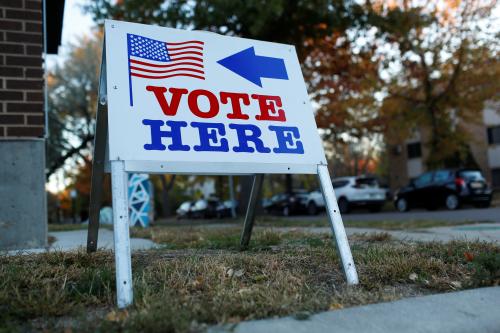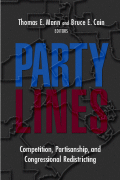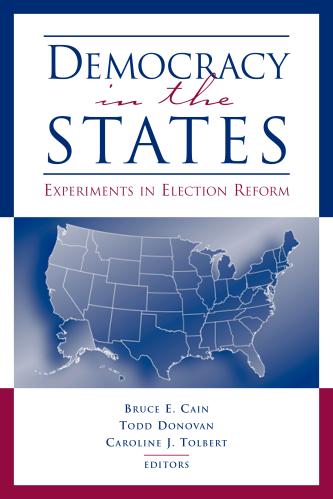Senator Romney announced that he would support a vote on President Trump’s Supreme Court nominee. Romney’s vote alone cannot stop Trump, but his announcement ended all talk of getting more Republicans to join in opposition to a pre-election confirmation. Robert Kagan writes that American democracy needs him to reconsider. This piece was first published in The Washington Post.
In announcing on Tuesday he would support voting for a new Supreme Court justice during an election year, Sen. Mitt Romney (R-Utah) said he didn’t want “to look at all the hypotheticals that might occur.” But here’s the hypothetical Romney needs to think about: If the United States slides from democracy to authoritarianism next year, history will record that his vote, along with those of other Republicans, made it possible.
President Trump and his allies have now made it clear how they intend to hold on to power if Trump loses the election, as seems likely. Republicans will challenge the vote tabulation in several key states, charging fraud, miscounts, foreign influence and every other conceivable form of electoral malfeasance. The charges will be designed to create a contested election, taking the choice out of voters’ hands.
In this scenario, the ultimate decision will fall to the Supreme Court, as it did in the 2000 election. At eight justices, with five Republican and three Democratic appointees, the court might back Trump, but he can’t be certain. Neither he nor we can know the mind of Chief Justice John G. Roberts Jr. Perhaps Roberts would not want the court to go down in history as putting the final nail in the coffin of American democracy by upholding the Republicans’ specious challenges. The court might then split, 4 to 4, leaving in place a lower court’s ruling.
But if the Republicans can ram through their appointee before the election, a court with a 6-to-3 composition is all but certain to rule in Trump’s favor. Even if Roberts chose to side with American democracy, the vote would still be 5 to 4 for Trump.
Trump has been explicit that this is exactly what he is thinking. The “scam that the Democrats are pulling,” he said Wednesday, not specifying what the “scam” is, “will be before the United States Supreme Court.” And “I think having a 4-4 situation is not a good situation.” Why? Because if the decision is “more political than it should be, I think it’s very important to have a ninth judge.”
This is why congressional Republicans, unlike the president, have had no difficulty declaring that there will be a peaceful transfer of power, while insisting on pushing their nominee for the court through before the election: There will be no transfer of power, peaceful or otherwise, because the new court will certify the president’s power grab.
And let’s not kid ourselves about what will happen to the country if Trump pulls this off. It will not just be another four years of head-shaking at the president’s tweets. Trump will have taken us to a new place, one we know only from watching the course of authoritarian regimes elsewhere. He will control not only the power ministries — the Justice Department, the Defense Department and the intelligence services — as he does now, and, probably, the Senate, which will continue to back his every move. But he will also have eliminated the Supreme Court as a check against his actions. There will be nothing left to stand in his way.
What should we expect then? We have already seen abuses of power by the federal government: against protesters in the streets and against the president’s political opponents. Think about what the world will look like after mass protests against Trump’s court-blessed seizure of power.
The attorney general and other senior government officials already rail against the “radical left” and the “anarchists.” It is a short step to labeling protesters and other political opponents as “terrorists” and prosecuting them under laws meant for terrorists, using methods meant to stop terrorism. We will see government employees hounded out of careers or brought up on charges for “deep state” plots against the president, and on an ever-wider scale. We will see newspaper and other media owners increasingly harassed by federal agencies, or forced to self-censor.
What this means for Romney is that the decision that may well determine America’s fate is not somewhere down the road in a land of hypotheticals. It is before him, right now. No speeches in the coming authoritarian era, no matter how courageous, will make up for the failure to act when something could still be done. Romney’s vote alone cannot stop Trump, of course, but his announcement this week shut down all talk of getting more Republicans to join Sens. Susan Collins (Maine) and Lisa Murkowski (Alaska) in opposition to a pre-election confirmation. If Romney changes his mind, other senators, such as Ben Sasse (Neb.), might also discover some as-yet-hidden reservoir of courage.
We have learned, perhaps too late, that America’s system of government is not as strong as we once believed. It requires leaders not only to show courage, which is rare enough, but also to show courage at critical moments — and to be wise enough to know when those moments have arrived.
Sen. Romney’s moment has arrived, whether he chooses to see it or not. History will record where he stood when American democracy hung in the balance.
The Brookings Institution is committed to quality, independence, and impact.
We are supported by a diverse array of funders. In line with our values and policies, each Brookings publication represents the sole views of its author(s).










Commentary
Op-edAmerican democracy needs Mitt Romney to reconsider
September 25, 2020